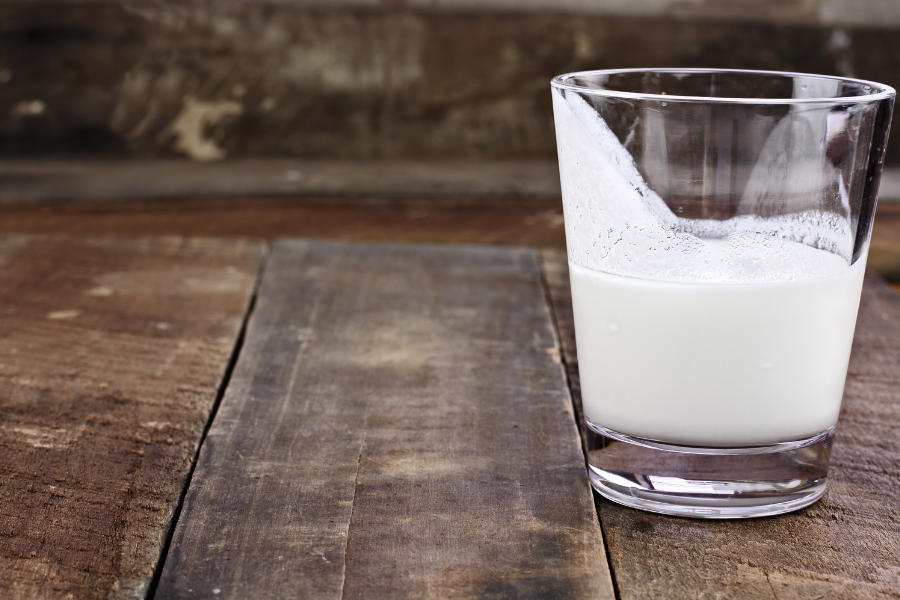Introduction
If you've been concerned about whether Fido can have that sour, yogurt-like drink called kefir, you're not alone. Today, many dog lovers are finding ways to upgrade their pup's diet to better, and more nutritious options than just the run of the mill kibble. Kefir is a fermented milk drink that is also a probiotic. It has been raising eyebrows, and causing tails to wag due to its multiple benefits that it offers - both humans and dogs. But is it good to let your furry friend have a sip? This blog post will doggy-dig deep into the pros and cons of giving kefir to dogs. You are about to learn why kefir can turn out to be a great add to your dog's diet, how to introduce it safety, and more.
Understanding Kefir
What is kefir?
Kefir is a fermented milk product; however, it is much thinner than yogurt (it is closer to milk in terms of viscosity). It is made by adding kefir grains to the milk and letting it ferment for a period of time. The end product is an acidic, slightly tangy, slightly fizzy (who doesn't like some fizz, right?) drink containing a high concentration of beneficial bacteria and yeasts - yes, certain forms of both bacteria and yeast can be beneficial. These microbes are what make kefir one of the strongest probiotics, and what makes it oh-so-good for maintaining gut health.
Nutritional Value of Kefir
Kefir is a very nutritious food; it contains a good amount of protein, calcium, and several different types of B vitamins. And as mentioned, t's also a rich source of probiotics-those friendly bacteria that help keep your digestive system running smoothly. The fermentation process involved in kefir's manufacturing breaks down the lactose, therefore making kefir easier to digest than regular milk for many people-and maybe for dogs, too. All in all, there is no doubt that kefir is a nutritional powerhouse. It is easy to understand why kefir is growing in popularity today amongst health-conscious pet owners.
Why Consider Kefir for Dogs?
Perhaps the most important selling point for kefir for dog owners is the potential medicinal effects it has on the gut (i.e. the digestive system). A healthy gut can contribute to not only a more robust immune system, but also greater absorption of nutrients. A healthy gut is even liked to good moods! Since dogs, just like humans, can suffer from G.I. disorders, kefir may present a natural way to help them in their general health and well-being. But before you go ahead and start pouring kefir in your dog's bowl like it's water, there are some things you need to know in order to ensure that you use it safely and effectively.
Is Kefir Good for Dogs with Itchy Skin?
Kefir may help those dogs dealing with with itchy skin. While most owners swear by its benefits for gut health and general well-being, scientific evidence is limited to support the fact that kefir helps prevent itchy skin among dogs.
However, by contributing to a stronger digestive system, and a stronger immune system, kefir may settle allergies linked to itchiness.
Probiotics and Your Pup
The Role of Probiotics in Canine Health
Probiotics are living microorganisms that, when administered in adequate amounts, confer a health benefit on the host (the host being you, or your pooch). These health benefits present as simply better digestion for your dog (i.e. less diarrhea or upset stomachs). This can be especially great for those dogs our there that have sensitive stomachs or have taken antibiotics recently. Antibiotics, if you have not heard, can drastically change the balance of bacteria in the gut.
How Kefir Fits into the Picture
Kefir is a rich source of probiotics, which can restore and maintain a healthy balance of gut bacteria in your dog. This could translate, as mentioned, to fewer tummy troubles and a happier, waggier, more energetic, and overall healthier pup. Additionally, kefir's probiotic content can support the immune system, potentially offering protection against illnesses, though research is conflicting.
Real-Life Benefits Experienced by Dog Owners
Indeed, many dog owners have found that adding kefir to their pets' diets can lead to striking improvements in their dog's health. There are plenty of stories about dogs who were suffering from constant digestive problems and finding relief, or stories of pups with skin issues getting better once kefir was introduced into their diet. Results will obviously vary, but these anecdotal success stories certainly give credence to the idea of kefir being a canine companion.
Introducing Kefir to Your Dog's Diet
Start Small, Dog (and Monitor Reactions)
Whenever you introduce any new food into your dog's diet, you need to do it gradually. Like, very gradually. You can start with a small amount of kefir - a teaspoon for a small dog will work, and a tablespoon if you have a larger doggo. Most importantly, keep a very close eye on your dog after you introduce a new food. You can even keep a journal if you'd like! For the most part, you want to look out for signs of an upset stomach, such as diarrhea or vomiting.
Tips for Serving Kefir to Dogs
Kefir can be served plain or mixed with your dog's regular food. Some owners even freeze kefir in ice cube trays to create a refreshing snack on hot days. Regardless of how you choose to serve it, make sure the kefir you use is plain and unsweetened, as added sugars and flavors aren't beneficial—and can even be harmful—to your dog.
How Much Kefir Can You Give a Dog?
Serving kefir to your best fur bud calls for moderation. Generally, serving sizes considered safe are based on your dog's size and weight. The smaller the dog, the less kefir they get! Small pooches can start with about 1 teaspoon, while the larger breeds you can go with 1 tablespoon. If your pup handles it well on the first try, you increase little by little and go up to a few tablespoons a day. Just remember, every dog is different, so pay close attention to their reactions and adjust accordingly.
Is Kefir Better Than Yogurt for Dogs?
Basically, when choosing kefir and yogurt for your dog, kefir would probably be the best option. That is where we would cast our vote! Both are really good sources of probiotics, but kefir typically contains more varieties of good bacteria and yeast, which makes it even more beneficial. Also, lactose will be reduced in kefir due to fermentation, which will also make quite a big plus over yogurt. Great as yogurt is (we are still huge yogurt fans. We are not hating on yogurt), kefir may be the superfood your pup needs to have that happy, healthy digestive system.
Potential Risks and Considerations
Lactose Intolerance in Dogs
Kefir is lower in lactose than regular milk, which is awesome, but it is important to keep in mind that a portion of canines are sensitive to dairy products. Even kefir can irritate your dog's stomach if he or she is lactose intolerant. Be very cautious with that, and if you're not sure your dog can tolerate dairy at all, consult your vet.
Allergies and Sensitivities
Besides lactose intolerance, other ingredients in kefir can be responsible for dog allergies or sensitivities. Be on the lookout for signs of allergic reactions such as itching, swelling, or difficulty breathing, in which case kefir use should be stopped ASAP.
Exploring Different Types of Kefir
Dairy vs. Non-Dairy Kefir
While traditional kefir is made from cow's milk, there are non-dairy alternatives available, such as coconut or water kefir. These can be a good option for dogs with lactose intolerance or dairy allergies. Each type of kefir has a slightly different nutritional profile, so choose the one that best fits your dog's needs.
Homemade vs. Store-Bought
Most food markets now carry kefir, but surprisingly, it is relatively easy to make at home! By making kefir at home, you can not only save a few bucks, but you also have complete control over the ingredients, so you can ensure there's no added sugar or unwanted additives.
Organic and Specialty Options
For those of you who want to go organic, or have already adopted an organic diet, most health food stores sell organic kefir prepared from the milk of grass-fed cows. Specialty kefirs-such as goat's milk kefir-will give a different nutritional profile and be easily tolerated by some dogs.
A Kefir Conclusion
Adding kefir to your dog's diet can have a number of positive effects, including everything from aiding digestion to boosting doggie immune systems. You can safely give your dog this probiotic drink by introducing it into their routine (start with small amounts), and diligently watching out for any adverse, or beneficial responses. Just make sure to consult your vet with any concerns or questions you may have, and consider trying different types of kefir as you experiment with what works best for your dog. Happy feeding!
References
1) Appleton J. The Gut-Brain Axis: Influence of Microbiota on Mood and Mental Health. Integr Med (Encinitas). 2018 Aug;17(4):28-32. PMID: 31043907; PMCID: PMC6469458.
2) Culpepper T. The Effects of Kefir and Kefir Components on Immune and Metabolic Physiology in Pre-Clinical Studies: A Narrative Review. Cureus. 2022 Aug 8;14(8):e27768. doi: 10.7759/cureus.27768. PMID: 36106262; PMCID: PMC9450431.



